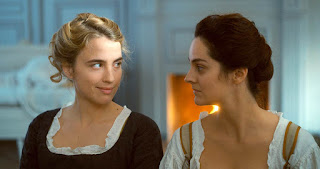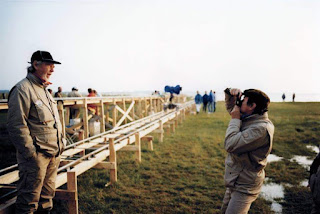The Power of the Dog (2021, Jane Campion)
Name - The Power of the Dog
Director - Jane Campion
Runtime - 125 mins
Platform - Netflix (on December 1st)
Phil Burbank, of the Burbank brothers, is like a coiled spring. The rancher commands charisma and attention from his peers and workers exuding a raw masculine vibe which borders towards an irritating and suffocating presence. His relationship with his brother George (Jesse Plemons) is far more antagonistic than one would expect. One can imagine Phil trying to get a rise out of George as Phil's efforts of domination and reestablishing his importance in that family dynamic takes precedence over maintaining a cordial relationship with his brother.
George Burbank on the other hand is on the other end of the spectrum of masculinity - soft spoken, well mannered, knows how to handle or in some respects not handle his brother and maintaining a straight face even as his brother throws veiled insults disguised as old familial musings. And credit to Plemons who establishes this conflict within his George with just his downcast eyes.
Director Jane Campion crafts a western, which is mutable. Able to shift genres almost seamlessly, The Power of the Dog becomes almost a gothic brooding melodrama as soon as Kirsten Dunst's character of Rose Gordon enters the picture. Her presence in George's life inspires resentment in Phil, who slowly tries to alienate Kirsten by psychologically torturing her, in ways far more covert than you would imagine. Phil's attitude towards Kirsten as well as his hostility towards his parents begs the question as what his problem is, even as your latent homosexuality radar goes off every second. Its as if the naked but beautiful vistas of New Zealand which doubles as the ranch area in Montana somehow manages to amplify the repressed feelings of Phil, and the more he tries to clamp them down, the more the coiled spring releases with a tremendous force.
Complication increases as Campion directs the story with a meditative pace, an almost beguiling and deliberate pacing which forces you to keep guessing. There is an assured confidence in Campion, whose decision to include chapter breaks helps the viewer to calibrate as the genre of the movie changes with the expolration of Phil's persona, who Campion focuses on inward. The scene of Phil bathing, or feeling the cloth on his face are such diametrically opposing viewpoints from the previous chapters that without those breaks, it would feel unearned or definitely appearing out of nowhere. Those chapter breaks signify the passage of time, the progression of story through days or weeks.
Kodi Schmit McPhee's character of Peter, Rose's son from her previous marriage, inspires a harsher reaction in Phil compared to his one for George. If George is soft, Peter is a nancy who is weak and effeminate. It changes though when Peter catches Phil bathing, arguably a very vulnerable moment for the character who is used to hiding his feelings and interests in the form of books of Bronco Henry as well as the human anatomy. This interaction springs forth a relationship between Peter and Phil, much to the chagrin of Rose, scared for her son's life. The chemistry between McPhee and Cumberbatch is simmering throughout and it almost boils over, even as Dunst explores Rose's character going over the edge, hitting the sauce and trying her hardest to sabotage this budding relationship.
Campion thus creates a psychosexual western, where revelations come about not with a bang, but with simmering string music accompanying said revelation. Jonny Greenwood's haunting score is almost antithetical to what is explored visually here, peaceful but beautiful vistas, bonding moments between two characters accompanied by a feeling of dread as the string sounds more and more plucked off. The revelation of Phil's character as well as the root cause of why that coiled spring of repressed feelings makes him act almost like a rotweiler on heat is a welcoming resolution in how matter of fact it feels. The final revelation though is where Campion excels, managing to create a resolution for the movie which feels all encompassing, able to invoke the films of Hitchcock, while also calling back the westerns of John Ford with its use of establishing shots via opening and closing of doors.
This beguiling and meditative pace is intentional, Campion crafting a western which is both epic in terms of the passage of time, but intimate in terms of the melodrama it explores. The use of natural light and foregoing of a color palette lulls you into false sense of wonder, as you are pulled into this family dynamic via the beautiful cinematography by Ari Wegner, and the universally brilliant performance by the whole cast. This is however Cumberbatch's time to shine. He crafts Phil as an almost mercurial force of nature in the first 3 chapters, later exploring his softer side and then showcasing how such a multifaceted character can exist, and both Campion's screenplay and Cumberbatch's performance manages to explore the opposing sides of his character flawlessly.
Narrative taking on a novelistic approach, Campion's exploration of sexuality is handled with care and nuance, even if the character under focus in this story isn't the most nuanced. For a filmmaker crafting her newest feature after almost 12 years, Campion proves how brilliant a filmmaker she really is, reaffirming the sentiment of being one of the finest filmmakers of her generation.
Rating - ⭐⭐⭐⭐.5 /5








Comments
Post a Comment